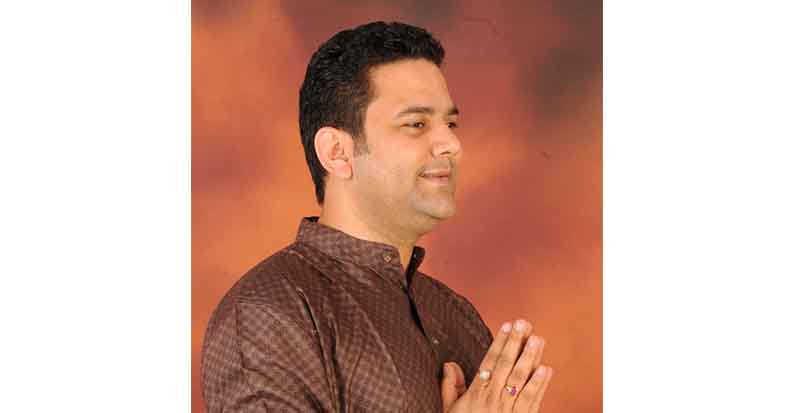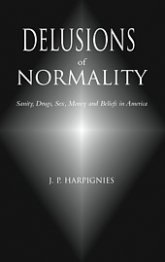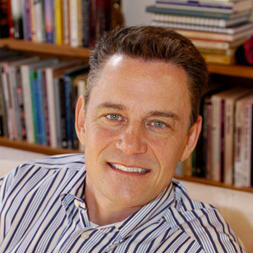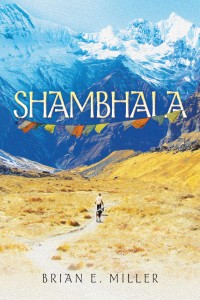
LM: I really liked your dedication for the book…Alone and without his nest shall the eagle fly across the sun, by Khalil Gibran. Has Khalil Gibran’s work influenced your own? In what way?
BEM: I was exposed to Khalil Gibran in my teenage years. I somehow acquired a copy of “The Prophet” and remember thinking I had stumbled upon some rare wisdom that no one had found yet. Lol. Little did I know at the time that this book had been read and studied by millions. The above quote is from “The Prophet” and I thought it was very appropriate for “Shambhala”. It is in leaving the proverbial nest that one is able to fly across the sun and reap all that heavenly beauty. The metaphor for me is about leaving your comfort zone in order to grow, spread your wings and fly.
As for Gibran influencing my work, I would say it has but in a way that everything you are exposed to in life influences all that comes next. I believe that there are no original ideas that one idea spawns from the previous and on it goes in an endless cycle, all borrowing from each other, beginningless and infinite. I know many have an issue with the term “beginningless” since we all want a creation point, a start point, an origination yet if you trace anything back you will never find a beginning, it’s all interconnected, like a circle not a line, it all goes around and comes back around. I would not say I was as influenced by Gibran’s work as some others such as Joseph Campbell, but it is definitely a spice in the soup and I have much respect and admiration for the poet and artist.
LM: Your novel is entitled, Shambhala, can you tell our readers what the word means?
BEM: Shambhala is known in both Indian and Tibetan history and lore as a fabulous kingdom, a pure land where all its inhabitants are enlightened. Entangled in mythology and lore for thousands of years it had later become a Buddhist Pure Land and when the mythology reached the west, it influenced both Buddhists and non-Buddhist alike, there have been many an expedition where people have sought to find this pure land. Many believe that the kingdom actually exists someplace in the Himalayas, others believe it exists in our hearts as a visionary or spiritual kingdom we can all access within ourselves. The answer? Well I believe each individual has to answer that for themselves.
LM: In reading your bio, I saw that you have been practicing Buddhist Psychology and Yoga for many years. What are the top three major tenants of these two disciplines that you feel our audience could benefit from understanding deeper in their individual day-to-day lives?
BEM: I came to the practice of yoga when I was about 18 years old. I had bad back pains and yoga helped me to alleviate them and ultimately help eradicate them. What happened was that the art of meditation was then introduced to me and opened me up to an entire new world within myself. When I came to study Buddhism I loved the meditation aspect, yet began to find that it’s practicality and everyday use proved to be life-changing in bringing more joy and kindness into my life, as I was able to project that forward to others, ultimately allowing me to create a more abundant and joyful life. I could go on and on about how meditation, yoga and Buddhist Psychology have changed my life for the better, yet like all things each has to find their own path and each experience will differ. I subscribe to the adage that Buddha and many other masters have told, take what works for you and discard what doesn’t and make all of it your own. So you practice and practice and practice the mechanical stage, the methods, but ultimately the student must go off alone and make it his or her own, the stage of no mind where you are not trying to do anything, yet simply express the true essence, the very nature of who you are.
So to answer the question of what are the top 3 major tenants of yoga and Buddhist Psychology: For both Buddhist Psychology and Yoga, I would have to say; 1. The ability to accept what is going on in our lives in order to gain clarity 2. The ability to change it as we stop relating to a fixed and limited self and realize the true essence of who we are which is limitless 3. The ability to change the world for the better by first changing yourself. As Gandhi said “Our greatness lies not so much in being able to remake the world but in being able to remake ourselves”.
LM: As you started to think about writing Shambhala, were there certain authors that inspired you?
BEM: I would say that Joseph Campbell had been a major influence on this book as his work and study on the hero’s journey was paramount in the creation of “Shambhala”. The book is also very much influenced by the teaching of Buddha, as well and in fact the teachings of Jesus Christ, I found that Jesus and Buddha were saying basically the same thing and ultimately I believe that all masters have said the same thing. Beyond the perversion of corporate religion and mistranslations lies a beautiful message of unity that all masters have come to realize. Although these masters are not “authors” their work has been authored by many and has influenced the book indefinitely.
LM: Can you tell us a bit about your motivation for writing Shambhala and your visits to India?
BEM: For me, and many others, India is such a beautifully inspiring land. As a writer one cannot help but to express prose, poetry and novels with admiration to this ancient world of wonder. I had journeyed to India for my 2nd time for a bit of self-exploration, study and to write a book that never ended up getting written.
As I struggled to write a semi autobiographical book throughout my journeys to India I found myself struggling as I journeyed from the far south up through the west coast of India. Finally finding myself in Rishikesh, one of the ancient worlds of yoga. In Rishikesh I had met a friend from New York who was staying with me for a few weeks, along a hike through the villages of Rishikesh and off into the jungle where we attempted to find a waterfall we were told about, I was inspired to write “Shambhala”. I will never forget that day; the ideas just came flooding in as if I was downloading the information. I think every artist knows that feeling when art just seems to create itself from an unknown source. Rishikesh was inspiring me at every turn and I remember just taking copious notes where ever I went that day, as ideas for the book would not leave me alone. I was excited and put the other work aside as I joyfully engaged in the writing of “Shambhala” for the remainder of my time in India and South East Asia which was several more months.
LM: How have your personal experiences (traveling to India) affected your writing?
BEM: Every writer is writing from personal experiences, even if you are writing about someone else you are writing your version of them. India was the canvas for which “Shambhala” was painted. It all started in Rishikesh, as does the book, and follows a journey high up into the Himalayan mountains. The journey Paul (Bahi) goes on is definitely reflective of the journey I took and the people I met and the lessons I was learning.
LM: What was the first thing that struck you as you deboarded the plane, setting foot on Indian soil?
BEM: This second trip to India for me was during a personal transition both of career and spirit. I remember as I first deboarded the plane in Trivandrum, it was about 3am. I had to wait on a line for customs in a very strange land; I remember the colors seemed to be washed out on the tiles and metal-hanging fans gently swayed pushing around the thick south Indian air. Right away doubt came flooding in, "What am I doing here?", I asked myself, I started to doubt my decision to leave my job and my country with a one way ticket to India, I am sure jet lagged and the cold I acquired in New York the day before departure were culprits in this doubt. I really didn’t have any plans or aim there in India except for a trip to the Sivananda Ashram in the South for some yoga and reflection. Little did I know of the amazing journey that lie ahead.
LM: You had a successful career working in production for commercial television in New York, what prompted you to leave that world behind?
BEM: That word success is a tricky one. If someone is not happy and does not feel their work is aligned with their purpose then that to me is not success, no matter how much money you make. I did however appreciate the job I had in television, the friends I met and the experiences and lessons I learned there, however my heart was telling me it was time to go. Very often when our heart talks to us we use the brain to shut it out in what is a fear response to something unknown. My leaving my career in TV was a long time coming. For starters I was not on the creative side of what I was doing, although I worked with the writers and creative directors I was more on the management side of producing, budgets, managing and finding locations for shoots, hiring crew and talent and so forth. It was a lot of fun and we definitely worked very hard and played just as hard and some of the experiences and people I met while working at Comedy Central I would not trade for anything, yet there was something missing, some sort of a higher calling if you will. I knew in my heart that I wanted to write and so it began, the angel and devil on my shoulder, the one telling me to stay in the job because its steady, I could save money and buy real estate and stocks and so on and the other whispering that life is brief and if we are not moving forward with what we truly want to do then we are not honoring ourselves and if we are not honoring ourselves we are doing an injustice to the world around us. There were so many levels to why I actually left, but ultimately it was to follow a calling I always knew someplace in my heart I would follow. It was not an easy choice by any means, I left a job in the midst of a recession with less than a year of finances saved up, I bought a one way ticket to India and decided to write a book that I had no idea how or where to start. To some it may have seemed quixotic and foolish yet as Blaise Pascal said, “The heart has its reasons of which reason knows nothing.” In hindsight it was a great decision yet at the time I had to feel the fear and do it anyway, as they say in the world of investing, with great risk comes great returns, yet it’s the “great risk” part that is unknown and scary.
I think there is an inherent problem today for many young people. They have all these dreams of what and who they want to be and do, yet when they graduate college or whatever they often settle for a position just to have a job, especially in this economy, often we say it will be a “Stepping stone” toward what we really want to do, and many times it is...yet too often, we get stuck on that stone and spend the rest of our lives peering out to what may have been. I took a leap off of that stone without even being able see the next one, which can be a very scary thing.
LM: The characters in this novel are so real…being partial to monkeys, I especially enjoyed Kavi, the wise monkey that Paul (Bahi) meets along his way. In reading this book, I really felt as if I were along for the journey with these visually rich characters. Were you inspired by real people/animals you’ve met along the way?
BEM: I was definitely inspired by the people and animals I met in India along my journey. Monkeys are very abundant in Indian life, as well as many other exotic animals so I melded personalities of many people and teachers I met with those of the animals I came across. Kavi is such a great character, to me, he is the wise sage and if you check, his philosophies are very Native American which, like Buddhism are timeless because they are not preaching a doctrine yet a lifestyle we can all adopt in order to be of more benefit to others, the Earth and ourselves in a way where everyone wins.
LM: What's your favorite part of the book?
BEM: That’s a tough question. I have so many favorite parts, but one part that really stands out is when Bahi rejoins with his wolf friend Ajee, I love the camaraderie they share. When we have a true friend by our side, we are able to open up fully to them and learn all we can, while at the same time enjoying all we do with them. I feel their friendship was one of great respect for each other and without giving anything away in the book, I’ll just say that the sadness at a certain point when friends have to part touches me deeply because at some point we all have to part but in ultimate reality we never do.
LM: When naming your characters, do you give any thought to the actual meaning?
BEM: I definitely did. In fact I named Bandar while at this small little sleepy village on the outskirts of Rishikesh. A young boy who ran a roadside chai shop with his father came and sat with my friend and I. This was the day that the idea of “Shambhala” took birth. In talking with the boy he taught us some Hindi, it was that day that I learned that the Hindi word for monkey is Bandar and so the characters name was born. As for the other characters, they all have Hindi and Sanskrit meanings. For example Kavi means wise sage, Kamini means desirable or beauty and so on. The cobra, Muchalinda is named after the protector mythology in the story of Buddha and Ajee and Bharat where actual people I met in India. Ajee is Sanskrit for infinite and endless and if you read into the character in the book you will see why that fits.
LM: Can you share with us a bit more about your second novel, anything you can tell us about the topic, where it takes place?
BEM: I actually have the rough draft of 2 more novels complete. One is nonfiction based on what I teach, you can see much of what I teach on my blog if you wish to, and the 2nd is another work of fiction. I am not partial to talking about my writing before it is finished, I feel it is like eating a meal before it is done cooking but I will share this, it is a completely different story line than “Shambhala,” in that is takes place in New York, yet there is a follow your heart type theme that anyone who has loved “Shambhala” is surely to love in this next book.
LM: Did you make any new year’s resolutions this year? If so, anything you care to share?
BEM: I try to make resolutions every day, as I feel in order to truly follow our resolutions we must resolve and revisit them everyday or else we tend to stray. I have however renewed my resolve to meditate every morning. Meditation, like all things, works best when we are consistent, even if it is just 5 minutes a day. So if I were to say that I had a new year's resolution that could be it, although I try to revisit this all the time, catching myself as I fall out of practice, like in meditation, I bring my focus back to it. I am big into the moon cycles as well, so for me I try to revisit my goals and aspirations every new moon cycle, this helps me to stay focused on what is important to move my life ahead while in the pursuit of helping others.
[caption id="attachment_2438" align="alignleft" width="258"]
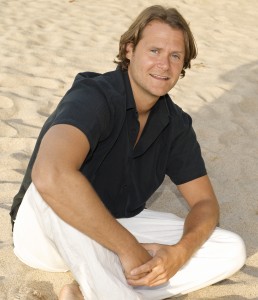
Brian Miller[/caption]
About Brian E. Miller: Brian E. Miller is a writer and teacher born and raised on Long Island, New York. Growing up, Brian was always crafting stories, whether written or verbal, exhibiting a passion for storytelling from a very early age. Today his stories invite the reader to view their own lives through the lens of his unique and interesting characters along their journeys. Inspired by the magical places and people Brian has encountered along his own worldwide journeys, he creates stories that are not only fun and engaging but often reflect an underlying truth of humanity. Drawing on the mythology and heroes journey that we all walk in our lives, his teachings and writings entice us to delve deeply into the often dark recesses of the mind, discovering truths that can lead us to a more balanced, harmonious and purposeful life…





